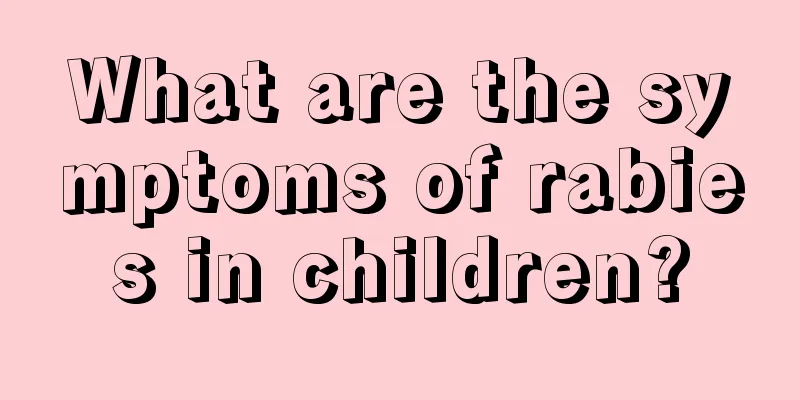What to do if your newborn's stomach growls

|
Many newborns always have a rumbling stomach when they are just born. If the stomach rumbles, it will attract the attention of many parents. They don’t know what causes the child, nor do they know how to improve the child’s stomach. So the child’s stomach keeps rumbling. There is a reason for the child’s stomach rumbling. So what should you do if the newborn’s stomach rumbles? If a baby has severe bloating, parents should first check his diet. If the baby is breastfeeding, the mother should check her eating habits. Did you eat corn or spicy cold noodles for lunch today? Maybe they are the culprits that made your baby's stomach uncomfortable in the afternoon! If you suspect that your eating may be the culprit, then breastfeeding mothers should eliminate those suspicious foods, such as beans, cauliflower and spicy foods from your daily diet, and then observe whether your child's symptoms improve at any time. "If the child's symptoms continue to wax and wane while the mother is on a diet, breast milk is not the cause of the gas," says Joseph Levy, MD, a pediatric gastroenterologist at New York-Presbyterian Hospital in the United States. However, if the child's gas is relieved, the mother should stay away from the suspected foods for a while before eating again. In addition, if breast milk contains too much sugar, the sugar will over-ferment in the baby's stomach and easily cause the baby to have intestinal bloating (also including loose stools, frequent stools, more foam, and a strong sour taste). At this time, the mother should pay attention to limiting her sugar intake. If your child is formula-fed, you can try a different brand of formula. When choosing milk powder, you should pay special attention to the nutritional formula printed on the packaging bag. Lactose-free, soy-free or hypoallergenic formula milk powder may help reduce your child's tummy ache. Of course, even if you change the milk powder, it will take at least two weeks to see the effects. In addition, certain solid foods may also cause belching and bloating. For example, whole grains (have you added corn soup, chestnut puree, etc. to your baby's complementary food to increase nutrition?), vegetables (such as pea puree, soybean puree), etc. all contain fiber that can cause intestinal bloating. Most pure fruit juices, such as apple, pear, apricot, etc., which contain high concentrations of sugar, can also cause poor gas condensation in the baby's abdomen. The best way to identify the culprit that's causing your baby's bloating is to eliminate one food at a time from his or her diet for a few days, observe how your baby reacts, and then slowly reintroduce that food. Eating style Sometimes, the key to the problem is not what the baby eats, but how the baby eats. In the case of breastfeeding, if the baby's mouth is not placed properly on the mother's breast when the baby is feeding, the baby may inhale too much air, resulting in burping or bloating. The correct posture is to have the child's face facing the breast (rather than at an angle) to ensure that his mouth covers the entire nipple and areola. Babies who are bottle-fed are more likely to take in excess air. Dr. Susanna Nelson of Children's Memorial Hospital in Chicago said: "When the child is drinking milk, if you hear a bubbling sound or see milk flowing out from the corners of the child's mouth, it is obvious that the child is not holding the nipple very tightly." You should try to position the baby's head at 45 degrees and keep the bottle tilted accordingly so that the nipple is always full of milk. If your baby has good swallowing ability, you can also make the hole of the nipple smaller to reduce the amount of air he inhales while drinking milk. If a newborn's stomach rumbles, we need to make the above improvements, but we must first find out why the baby's stomach rumbles. This phenomenon does not rule out the possibility that the baby's stomach is rumbling due to cold and diarrhea. It may also be that the baby is hungry, or that the baby has inhaled too much air into his stomach. Only after these reasons are found can we make proper improvements and care for the child in life. |
<<: What are the sequelae of neonatal intracranial hemorrhage?
>>: Reasons why children sweat coldly when sleeping at night
Recommend
What should I do if my 2-year-old baby has a bacterial infection and fever?
The baby in every family is the core figure of th...
What causes baby coffee spots?
Café au lait spots in babies are a relatively rar...
What is physiological jaundice in children?
Nowadays, many children will have symptoms of phy...
Children's hands and feet are cold and they are afraid of cold but not fever
Children in their early childhood are very prone ...
Will motor developmental delay affect intelligence?
Maybe many of our children are prone to motor dev...
What are some tips for treating a child's stuffy nose?
The physical condition of the child is what worri...
12-year-old baby education
In life, many parents feel particularly worried a...
What is the cause of the red pimple on the baby's chin?
If a baby has some small bumps on his chin, it is...
What should I do if my child has a blocked nose when sleeping?
Children's sleep is a very important part, wh...
The child grows taller but does not gain weight
Parents have different requirements for their chi...
What should I do if one side of my baby's nose is blocked?
Sometimes when we are taking care of the baby, we...
What should children with precocious puberty eat?
For the growth of children, it is not only necess...
What is the normal weight of a three month old baby?
The baby's weight requires parents to pay mor...
How to improve children's memory?
Every parent wants their children to be successfu...
The dangers of little girl's leg-clip syndrome
Parents always find that their little girls have ...









